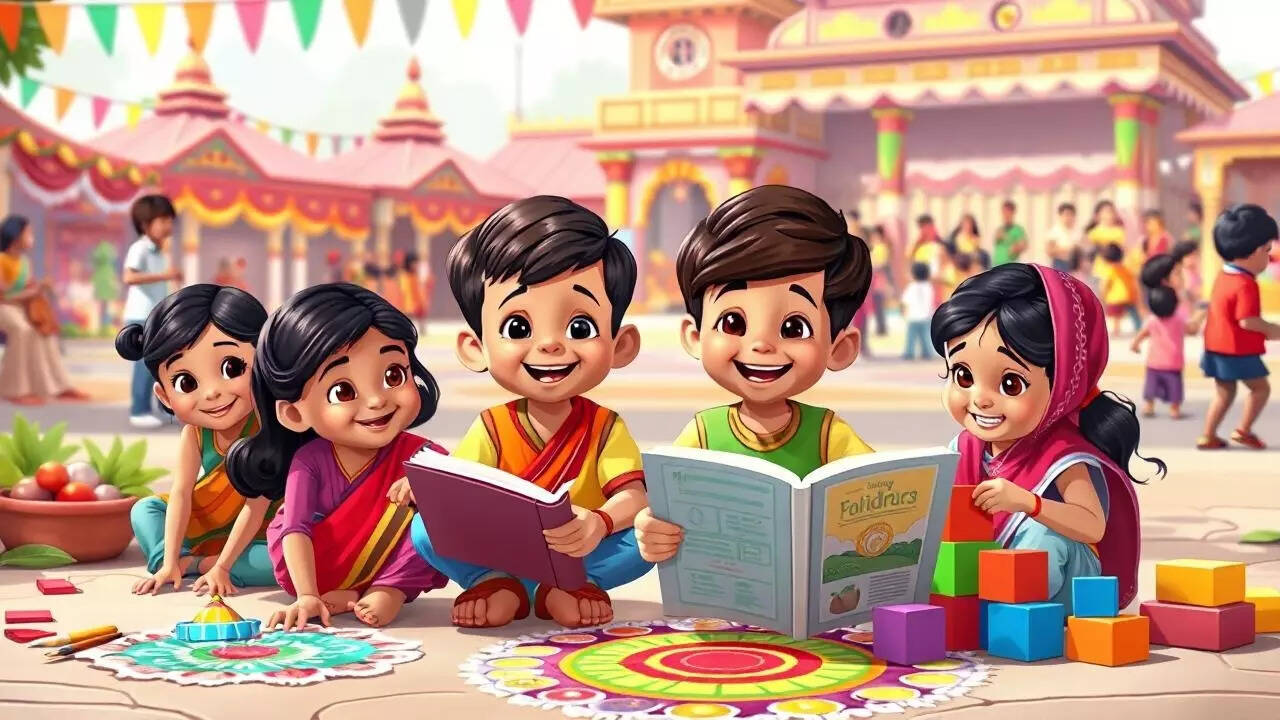Children’s Day 2025; Why India Celebrates The Occasion & Its Enduring Significance
Children’s Day in India, observed every year on 14 November, is a celebration deeply rooted in history, emotion and national sentiment. Marked on the birth anniversary of India’s first Prime Minister, Pandit Jawaharlal Nehru, the day emphasises the importance of nurturing, educating and empowering children. Nehru’s affection for young people was well known; he believed that the strength of a nation depended on how well it cared for its youngest citizens. Today, the day is celebrated with a mix of cultural events, school activities and awareness programmes, reminding the country that children are the cornerstone of a progressive future.
This change was more than symbolic. It reflected Nehru’s philosophy that children deserved special attention because they represented the promise of a better tomorrow. By dedicating the day to him, the country acknowledged his belief that investing in children was essential for India’s long-term progress.
His famous statement, “The children of today will make the India of tomorrow,” reflects his conviction about the role of youth in nation-building. Children’s Day, therefore, serves as a reminder of his commitment to improving access to education and creating an inclusive environment where every child could flourish.
Beyond the festive mood, the day also encourages conversations about children’s rights, education, safety and well-being. NGOs, child welfare organisations and government bodies use the occasion to raise awareness about issues such as child labour, malnutrition, access to education and health care. These efforts aim to ensure that the spirit of the celebration translates into meaningful change on the ground.
In a rapidly changing world, children face new challenges, from digital safety to mental health concerns. Children’s Day serves as an opportunity to assess how well the nation is supporting them and to renew commitments to their welfare. Nehru’s vision remains relevant, urging society to prioritise education, equality and compassion.
Children’s Day is therefore not just a date on the calendar but a call to action — a reminder that protecting and uplifting children is both a duty and an investment in India’s future.

Historical Background of Children’s Day in India
Before India established its own dedicated day, Children’s Day was celebrated on 20 November, aligning with Universal Children’s Day declared by the United Nations. However, following Nehru’s passing in 1964, Parliament decided to shift the date to coincide with his birthday as a tribute to his enduring love for young people. Known affectionately as “Chacha Nehru,” he envisioned a nation where children received quality education, equal opportunities and the freedom to explore their talents.This change was more than symbolic. It reflected Nehru’s philosophy that children deserved special attention because they represented the promise of a better tomorrow. By dedicating the day to him, the country acknowledged his belief that investing in children was essential for India’s long-term progress.
Nehru’s Vision for Children and Education
Pandit Nehru firmly believed that children were the true foundation of a nation. He emphasised the importance of nurturing curiosity, creativity and critical thinking from a young age. His government laid the groundwork for several institutions of learning, including centres of scientific research, higher education and technological advancement. Nehru saw education as a tool for empowerment, capable of shaping responsible and enlightened citizens.His famous statement, “The children of today will make the India of tomorrow,” reflects his conviction about the role of youth in nation-building. Children’s Day, therefore, serves as a reminder of his commitment to improving access to education and creating an inclusive environment where every child could flourish.
How Children’s Day Is Celebrated Across India
Children’s Day in India is celebrated with enthusiasm across schools, communities and public institutions. Many schools organise special assemblies, cultural programmes, fancy dress competitions, art exhibitions and sports activities to make children feel appreciated. Teachers often take the lead in performing skits or songs for their students, flipping traditional roles for a day.Beyond the festive mood, the day also encourages conversations about children’s rights, education, safety and well-being. NGOs, child welfare organisations and government bodies use the occasion to raise awareness about issues such as child labour, malnutrition, access to education and health care. These efforts aim to ensure that the spirit of the celebration translates into meaningful change on the ground.
The Deeper Significance of Children’s Day
While the celebrations bring moments of joy, the deeper significance of Children’s Day lies in shaping attitudes towards young people. The day highlights the responsibility of society to create an environment where children are protected, nurtured and encouraged to dream freely. It reminds parents, teachers and policymakers of the importance of holistic development—intellectual, emotional and physical.In a rapidly changing world, children face new challenges, from digital safety to mental health concerns. Children’s Day serves as an opportunity to assess how well the nation is supporting them and to renew commitments to their welfare. Nehru’s vision remains relevant, urging society to prioritise education, equality and compassion.
Why the Celebration Still Matters Today
Despite progress in recent decades, many children in India still struggle with barriers such as poverty, limited access to schooling and lack of basic resources. Observing Children’s Day each year keeps these issues in public focus. It encourages communities to celebrate achievements while acknowledging the work that remains. By continuing to honour Nehru’s legacy, India reinforces the idea that the well-being of children determines the future health, prosperity and unity of the nation.Children’s Day is therefore not just a date on the calendar but a call to action — a reminder that protecting and uplifting children is both a duty and an investment in India’s future.
Next Story